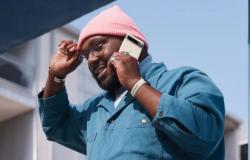Will the prices of refurbished smartphones increase from next Christmas? This is the scenario feared by the French reconditioning industry, which is worried about the future application of the “USB-C directive”. This European law will impose the USB-C port on all devices placed on the European market from December 28, 2024. And for the players in the sector that we interviewed, they will soon be the (future) collateral victims of a text virtuous for manufacturers of new smartphones, but “ catastrophic for reconditioning companies in France and the European Union (EU) “.
This European directive threatens the sector, believes Reynold Simonnet, vice-president of Sirrmiet, contacted by 01net.com. The main union of French repackagers has sent a letter to the ministries of Bruno Le Maire (economy), Olivia Grégoire (SME) and Marina Ferrari (digital), “ co-signed by its members, but also by broader players in the sector such as distributors and operators “. Their request: that the reconditioning sector be exempt from the directive for four to five years. This period of time would allow smartphone models without USB-C to be sold, until falling within four years on the iPhone 15, the first Apple smartphone to have a USB-C connector, explains Reynold Simonnet.
The “oblivion” of the European legislator
At the origin of the alert is this European directive of November 2022 which aims to impose the USB-C port on all devices, recalls Jean-Christophe Estoudre, founder of the French reconditioner Smaaart, joined by 01net.com. The idea is to impose the same port on manufacturers of new products (smartphones, computers, tablets) for devices placed on the European Union (EU) market. “ Having a universal charger for the new one is very positive. This is an approach that preserves the environment », Estimates the business leader.
The European text was then transposed into French law, via an order and a decree of December 2023. The problem is that the application of this law is based on the term “ placed on the EU market”, at large. Gold, “ Europe has actually forgotten that in this term, there were also the placing on the market of reconditioned products. These are old products, for which reconditioners do not master the manufacturing of the products and therefore the type of connections. », specifies the man at the head of Smaaart.
Concretely, the European legislator would not have made the distinction between new and reconditioned. Today, ” the consequence is that all products without USB-C will no longer be able to enter the European market from next Christmas. They will find themselves put aside: we will no longer be able to repackage them and re-offer them to a new user. », Alarms Jean-Christophe Estoudre.
The sector is largely supplied outside the EU
It is important to understand that in the refurbished sector, there are two main sources of smartphones to be refurbished: the first comes from “ international brockers (wholesalers, editor’s note), which allow large volumes to be reconditioned, mainly coming from the United States where smartphone leasing is quite developed », explains Christophe Brunot, co-founder of the French reconditioner Largo. The second comes from “ local recovery programs – a more local Source that only meets around 20% of demand “. Result, ” we need to import products to meet the demand of French consumers », insists the CEO of Largo.
With this directive, fewer smartphones will be able to be imported, which will “ generate a shortage on the European market. And who says shortage says speculation on trade-in programs and therefore on prices, and therefore less interest in the refurbished smartphone », explains Christophe Brunot.
The same dark scenario, for the moment hypothetical, is described by other players in the sector, including by those who have 100% French sourcing like David Mignot, at the head of YesYes. The prices of refurbished devices may indeed rise, because all refurbishers will want to get their supplies from the same place. “ This will lead to strong competition, followed by an increase in the prices of reconditioned goods for the consumer. », underlines Reynold Simonnet, vice-president of Sirrmiet.
Also read: Refurbished smartphones: behind the promise of an eco-friendly and inexpensive product, a more bitter reality
This directive will lead to “an increase in the prices of reconditioned goods, and a shift to new goods”
And with these price increases, we risk seeing sales of reconditioned products collapse, he adds. Because if the gap between the price of new and the price of a reconditioned product is not sufficient (there should be at least a 15% differential), consumers will continue to buy new, continues the boss of Dipli, a interface service between operators and reconditioners. “ This directive, which has an ecological objective, makes it possible to solve the cable problem. But it creates a more important problem, which is the increase in prices of reconditioned goods and the shift to new ones. “.
Enough to constitute a real ecological contradiction when we know that 80% of the environmental impact of digital technology today is the manufacture of the terminal. It’s simple: we will “ against everything that has been voted in recent years to promote second-hand consumption », Regrets Christophe Brunot, the co-founder of Largo.
From 22 iPhone models that can be imported to… 4
Concretely, it is Apple products – which have a Lightning cable and not USB-C – that we will no longer be able to put back on the market. However, the apple brand generally represents a large share of sales of reconditioned products, recalls Eric Cordon at the head of QuelBonPlan, a marketplace which only lists French reconditioners. “ From December 28, it will no longer be possible to stock up on products that do not have USB-C, therefore all ranges of products that are currently sold by refurbishers, such as the iPhone 11, 12 , 13, 14, can no longer be imported »he is alarmed.
The vice-president of Sirrmiet corroborates: “ Today, there are 22 iPhone models that are compatible with iOS 17. This is the best performance in terms of software obsolescence that is practiced on the market. By December 28, we will have to move to only 4 “. The rest cannot be placed on the European market. “ They will end up in the trash. There will therefore be more carbon equivalent emitted, and less purchasing power for consumers », summarizes Reynold Simonnet.
The directive ” will be fatal to lots of French and European companies »
Alongside what is described as “ an environmental disaster “, the sector will be weakened, believes the boss of Dipli, who recalls that the economic model of French repackagers is far from solid. “ There, we tell them, at Christmas in 2024, in 2025 and in 2026, you will part with 50% of your turnover. » – because what we forget is that “ the best-sellers reconditioned today and until 2026, they will be iPhone Lightning – without USB-C – namely, the iPhone 11, 12, 13. It is therefore extremely brutal “, he emphasizes.
For the union official, this is not just a transitional period. The directive ” will be fatal to lots of French and European companies “. The problem is indeed not just Franco-French. “ At Dipli, we have partners throughout Europe. So, we cover the entire European Union. And it’s the same story with everyone. That is to say thatthere is a wave of panic, really, which has spread throughout the European Union “.
Within the French government, “ our interlocutors understood very well what was happening. They fully support the reconditioned sector,” underlines Jean-Christophe Estoudre, head of Smaaart. The fact remains that it is a European directive which requires action from Brussels. We must therefore convince the European legislator, adds the CEO.
Contacted by 01net.com, the office of Marina Ferrari, the Secretary of State for Digital, recognizes that the directive “ whose initial ambition we share ” of ” fight against the increase in electronic waste » and greater interoperability of equipment will have “ an impact on the French and European electronic product reconditioning sector “. The latter explains “ working right now on this issue, at national level, as well as at European level “, evoking ” a third way of common sense “. The objective is to ” do not leave anyone without a solution and do not endanger this sector to which we are attached, while reaffirming our attachment to the universal charger which has been acclaimed by European consumers “.
But for Jean-Christophe Estoudre de Smaaart, the problem would be deeper: “ We have already had laws several times that do not concern reconditioned products, but which are applied to reconditioned products. VSwhich the Sirrmiet union also defends, it is that we are identified as a separate sector and not assimilated to the new. I think today there is a lack of a legal legal status for reconditioned products. “.
In that case, ” we really have the impression to be the fifth wheel of the carriage “, regrets the vice-president of Sirrmiet. Yet, “ the reconditioned market can no longer be ignored. 20% of smartphone sales today are made on refurbished products in France, in a market which is growing by 15% per year », he recalls. But until now, “ we have the impression of always being asked in return. And sometimes it’s too late “.
-
-






